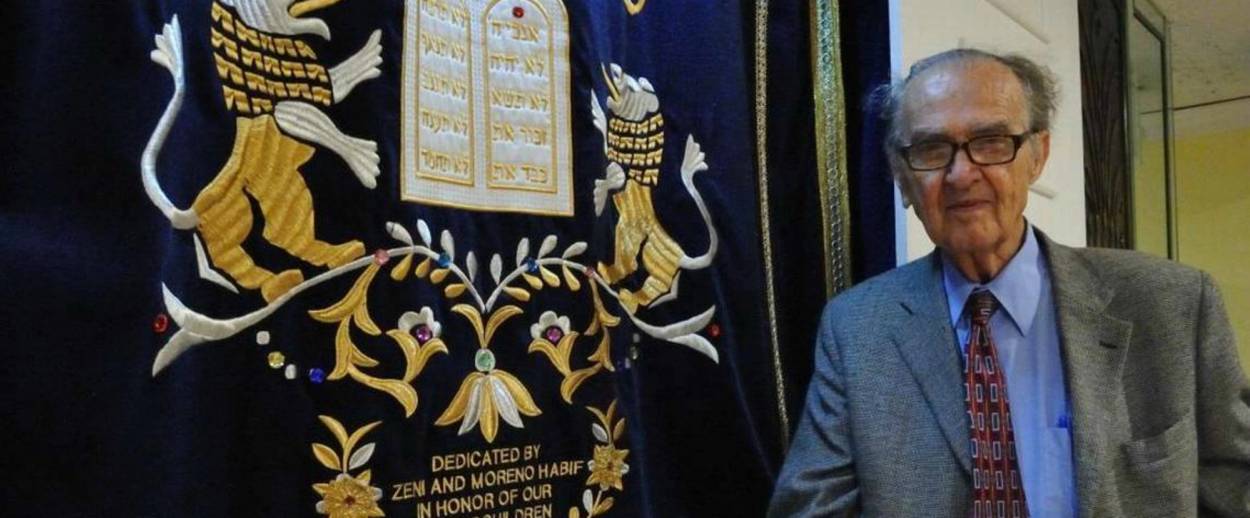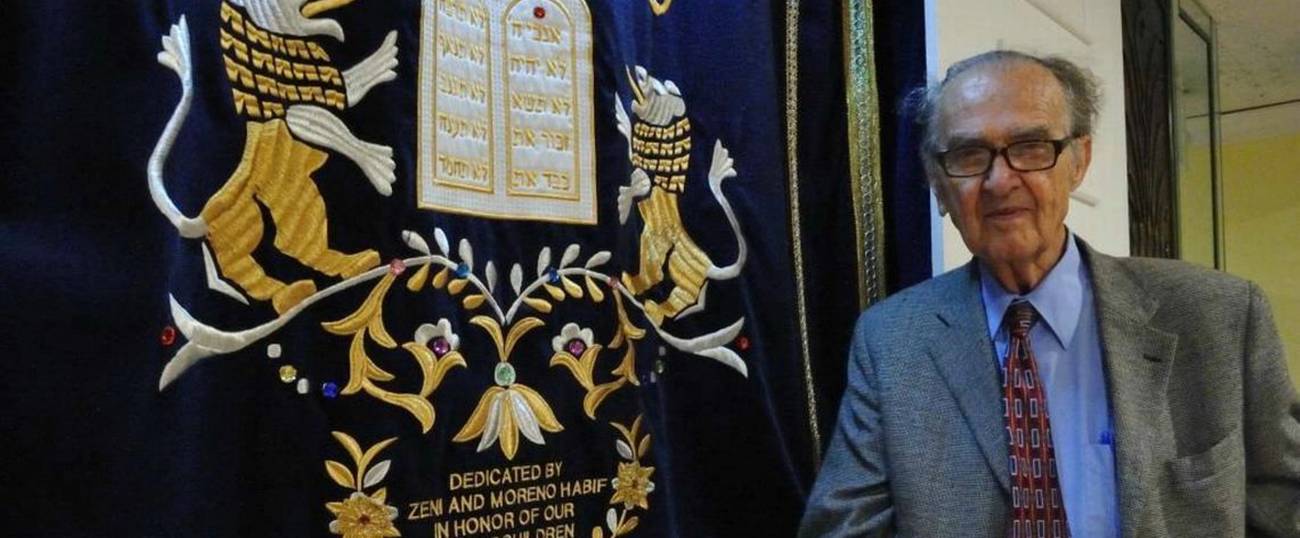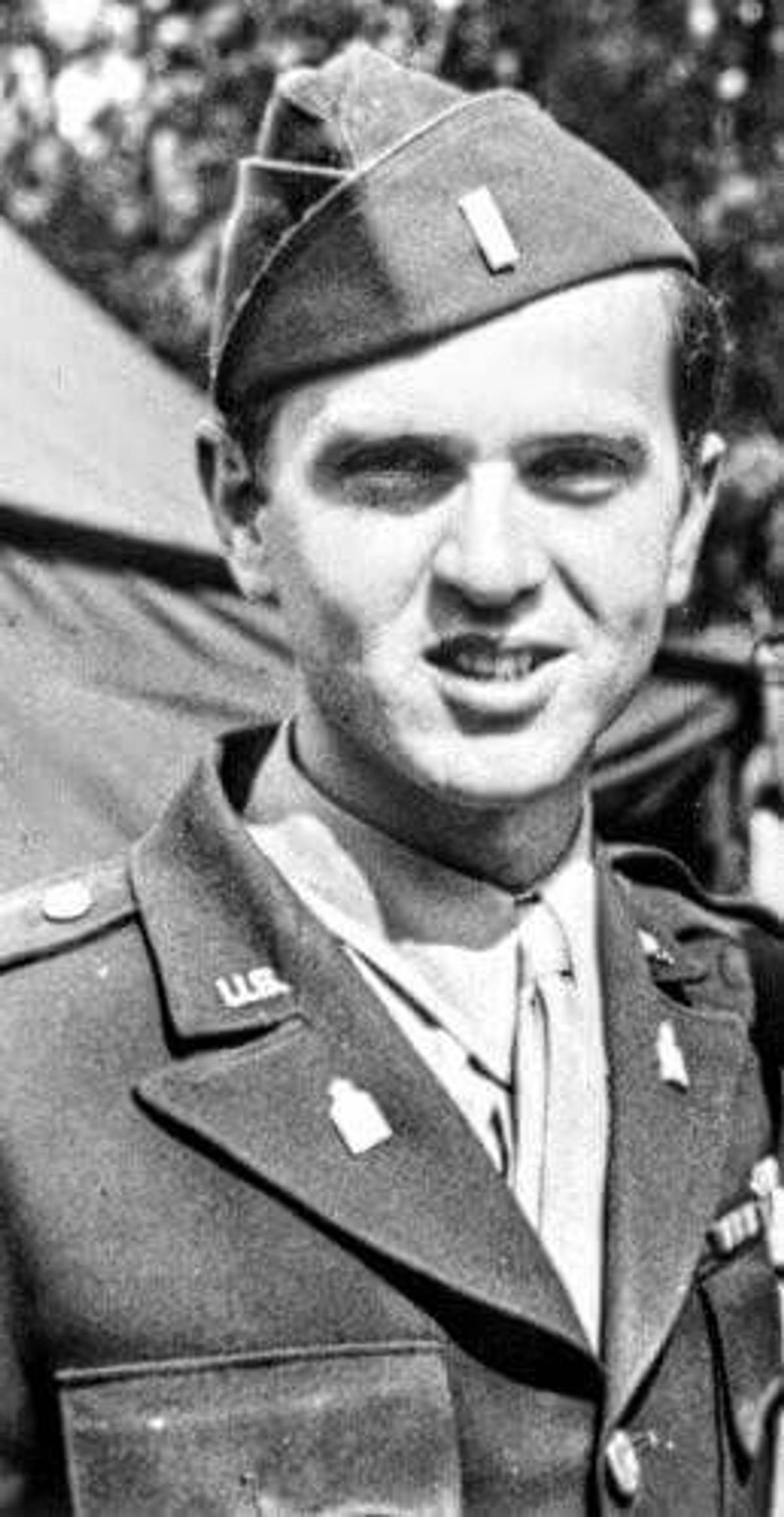Rabbi Mayer Abramowitz, who died last week in his home in Miami Beach at the age of 97, dedicated his life to changing the lives of displaced persons in the United States and abroad―namely Jewish survivors of World War II in Germany, and Miami’s Cuban-Jewish exiles in the 1960s, and onward.
What’s striking about Abramowitz’s story is that he himself was also an immigrant. Born in Jerusalem in 1919, Abramowitz moved to the U.S. with his family when he was 9. Although his parents returned to Palestine, he remained in New York to pursue his education at an Orthodox yeshiva, then at Yeshiva University, and then, ultimately, at the Jewish Theological Seminary, where he would receive his rabbinic ordination. In the years to come, Abramowitz went on to serve as a chaplain and lieutenant in the U.S. Army.
Stationed in Germany from 1945 to 1947, Abramowitz organized the first Passover seder in Allied-occupied Germany and assisted Jewish displaced persons entering Berlin from Eastern Europe. Military personnel and survivors alike, about 400 in total, attended the seder, held on April 15, 1946 in an underground bunker in Kassel. In a column he wrote for United Jewish Communities, he describes the Passover preparations in detail:
Passover staples began to arrive in two-and-half-ton trucks. The drivers fondly called the operation “the Matzah Ball Express.” Matzah by the tons, wine by the gallons, gefilte fish by the truckload, hagadot by the case, nuts and apples by the bushels — even Festival candles — began to arrive in my tiny office in Bad Wildungen, which I had to transship to Kassel.
Vis-à-vis his work with displaced persons in Germany, Abramowitz helped establish one of the largest schools for displaced children in the Schlachtensee DP camp’s American zone, in addition to leading a weekly teachers seminar for Jewish instructors. He even met his wife, Rachel Kosowski, while helping displaced persons. On duty at the Wittenau DP camp in Berlin’s French zone in July 1946, he was assigned to greet the last truck of Jewish DPs from Eastern Europe. It was beshert―she was on the vehicle. (Here’s an image of Abramowitz singing during services in 1947.)
If Abramowitz’s efforts in Germany were outstanding, his support of Cuban Jews in Miami cemented his reputation as a mensch. At Temple Menorah, the Miami Beach synagogue he served for 45 years, he welcomed Cuban exiles into his spiritual home―including many young Jews who entered the U.S. as part of Operation Pedro Pan—when others in the Jewish community were not as accepting. He was so dedicated to assisting the Cuban refugees that he was considered the “father of the Cuban Jewish community.”
“Rabbi Abramowitz was so well known in our Cuban exile community because he tried hard to build bridges between different groups,” U.S. Rep. Ileana Ros-Lehtinen―whose maternal grandparents were Sephardic Jews who emigrated to Cuba from the Ottoman Empire―told The Miami Herald. “He was especially helpful in the tough early years when so many Cuban refugees were coming over and we were so unfamiliar with how to find a job, get help for the elderly, or feed young children. The faith community, as always, really helped so many Cuban refugees. And Rabbi Abramowitz set the tone for others like him to emulate his kindness. A real mensch.”
In our uncertain times, we can all learn from Rabbi Abramowitz’s example by supporting our communities and driving our own (metaphorical) Matzah Ball Expresses.


